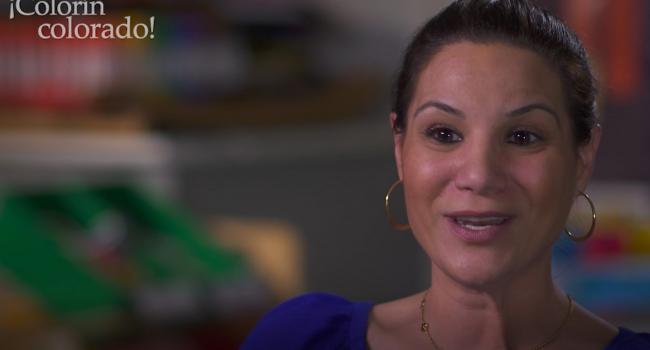May Mosallam

May Mosallam is the EL Coordinator for Dearborn Public Schools. In this interview, May highlights the important role that collaboration, training, and district support play in EL instruction.
This interview was part of our Dearborn video project.
Transcript
When a new EL teacher is hired
When a new teacher gets hired into the EL department, they’ll meet with us one on one, and during this time we’ll give them some teaching tips, best practices, strategies, EL 101, if you want to call it that way. We’ll give them some recommendations on how to proceed with their ESL endorsement, universities that we have a partnership with. And they leave with a packet that has a lot of necessary resources and tools within. In addition to that, upon arriving at the school building, all of our schools have English language development specialists, ELDs.
We also do a coaching model. In our department we have language and literacy and SIOP trainers. They’ll have coaching cycles with newer teachers. They’ll work one on one. We use a co‑teaching model where they’ll watch our ELD coach and then they’ll -- I do, you do, we do at the building -- these are all supports that are at the building level.
And there’s also a new teacher academy within the district. This is where teachers will go to PD once a month. In addition to receiving this PD, they’ll also receive SCECH so they’ll also be up to date with all the requirements for the state by the end of the school year.
Challenges in teaching new immigrant students
When you’re teaching new immigrant students, we have to remember a lot of these students are coming to this country possibly separated from their family. Maybe a mother is left behind. Maybe a sibling is left behind. Maybe a grandparent is left behind. They’re in foreign territory. Some of these students have never been in school before. So you’re facing this challenge within itself of all this growth that this child has to make year to year. Therefore, there’s a tremendous amount of supports that are necessary. A lot of support has to come from admin, ELD specialists, the district level. A lot needs to be in place when we’re facing this day‑to-day challenge.
Building the relationship with the student
When I meet with new departmental teachers into the EL department, the first thing I tell them, this is all about heart. You have to remember, build that relationship with that child, understand their background, understand where they’re coming from, understand what they’re walking into your classroom with and have faced before we’re even going to start with our alphabet or before we’re even going to teach this child how to read.
First and foremost, build that rapport, understand that child, bridge that gap between you and that child and let them understand you’re here for them to support them. And then when that last day of school rolls around and that child walks up to you and smiles and thanks you, you will understand this is where your reward came in.
Learning from my dad’s example
My father was 14 when he immigrated to this country. He left his mother and all his siblings behind. His father was already here. He worked 80 to 90 hours a week just to be able to make money to send home and for him and his father to save up to bring the rest of his family here. By the age 18 he completely taught himself how to read and write English, self‑taught, and he enrolled in the United States Army.
When he enrolled in the United States Army and completed his years of service, they then gave him permission to bring his entire family here. When he brought over his whole family, then they bonded, they worked together, they were all successful. They were able to purchase businesses and become successful business people within the community.
And my father always taught me one thing. If you can help, you always help. You have to do what’s right and you have to do what’s best from your heart. So if you’re going to walk into my office and tell me situations about these students, you have to relate. You have to understand. You have to know their background. And you have to understand your intent and why you’re here and your purpose for entering that child’s life.


